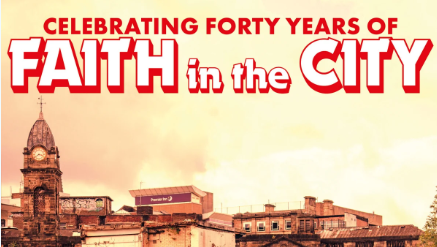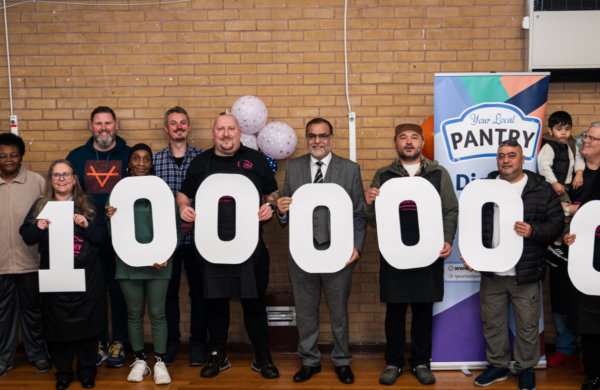The prophetic imagination
A report from our 16 April online discussions on what it means to be church on the margins during the pandemic.
Reflection by Urzula Glienecke
What are the things we can learn from the lockdown situation?
- We don’t need our church buildings, we can be more creative, meet in different places.
- Democratised worship, not hierarchical
- Relational church
- We are currently dependent on zoom, the church is dislocated from the neighbourhood
- The violence of capitalism denies what it is to be human – huge divides between rich and poor, white privilege (be cautious about heroic words that come from out privilege)
- The virus has exposed how bad the situation was before
- People with disabilities and others were already experiencing social isolation
- Having to identify people in need of help (not already known/in contact)
- The presence of the church/delivering food shows presence and love
- Our economy was not working for all – how can this be addressed post covid?
- Universal income
- If we were consultants to the Bishop – what would we be saying?
- Need a clear strategy, not multiple campaigns, not duplicating work
- We are currently very reliant on food banks
- Kairos moment – crisis and opportunity at same time
- This has forced us to do things differently, we can imagine something different but we have to make it happen
- Action comes out of prophetic imagination
- Kindness makes a huge difference
- Value placed on people’s lives, vulnerable and people with disabilities asked to sign DNRs.
- We can learn from countries that are doing things well, e.g. New Zealand, Finland
- Food security is closely tied to legal (and illegal) immigrant workers. We need to value them.
What would be the one thing which you would improve/change in your local community after the lockdown?
- Work for Universal basic income
- Work for the church to be more integrated in the community/build relationships
- Storefront churches turning into missional housing, Christians living intentionally on the block, pushing back against gentrification
- Challenge institutional church re. finances, where, what, how it spends its money
- Digital provision and training for people currently excluded
- Economic activity with ecological focus
- Inspiration from people involved in prophetic action (Romero, Martin Luther King, Dorothy Day, Sojourner Truth)
- People’s own relationship to (and awareness of) their own power
- People designing their own communities/structures (eg older people and people in poverty)
- The churches are ‘closed’, but still ongoing. We are the church.
- We need to change our attitudes towards immigrants (many of our key workers, nurses, delivery drivers, food harvesters).
- The church needs to become ‘the voice of the national consciousness’ (reflecting voices of change, equality, fairness).

Research and Information Officer
How should churches address rural poverty?
How is rural poverty changing, and how should churches, dioceses and Government respond? Paul Phillips explores the issue, and reports on his diocese’s work. In …
Faith In The City: why it still matters, 40 years on
In a new book, authors Terry Drummond and Joseph Forde revisit the landmark Faith In The City report, 40 years on. Faith in the City, …
Pantries reach 1 million visits – as new research proves they work
Community breakfast held to mark millionth visit New research shows Pantries improve people’s health, reduce worries and reunite communities Thank you for your amazing support! …
Grief is hard enough: it’s time to improve funeral support
Lindesay Mace from Quaker Social Action outlines their latest work to help people with funeral costs Bereavement can be a deeply challenging experience. In the …
New toolkit: Hosting a regional anti-poverty roundtable
Our new roundtable guide will help churches or dioceses to host productive regional events We’ve published a new resource for churches and dioceses who would …
Review: The Perils of Universal Credit
Ellie Malhotra reviews a new play, a much-needed wake-up call for change that restores power to voices that are too often ignored. Tucked away above …
How should churches address rural poverty?
How is rural poverty changing, and how should churches, dioceses and Government respond? Paul Phillips explores the issue, and reports …
Faith In The City: why it still matters, 40 years on
In a new book, authors Terry Drummond and Joseph Forde revisit the landmark Faith In The City report, 40 years …
Pantries reach 1 million visits – as new research proves they work
Community breakfast held to mark millionth visit New research shows Pantries improve people’s health, reduce worries and reunite communities Thank …



